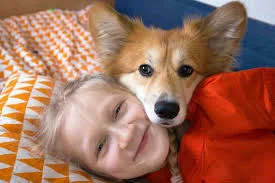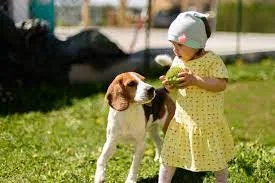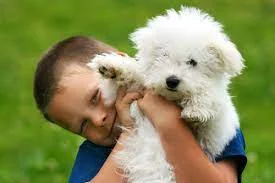With holidays, it is always fun to find ways to include your pets in the celebration. They are, after all, part of the family and should be actively involved in family activities. That said, sometimes it is hard to find ways to do this that are fun for your both and will be safe for your pet.
Since most of us own dogs or cats (no offense to the mice, gerbil, parrot, ferret, pig, etc.) here are a few ideas for you to consider this holiday season to help include your baby in all the family festivities.
Holiday Photo Shoot:
Almost everyone love to dress up their pets for holidays, so dress up your pets in festive attire and have a holiday-themed photo session. This can be a fun way to create lasting memories and adorable holiday cards.
Pet-Friendly Holiday Treats:
While you are making special foods for the family, don't forget your babies. Bake or buy special holiday treats that are safe for pets. You can find recipes for dog or cat-friendly cookies and cakes online, and you pet will love them (be sure to check the ingredients for things that might be harmful). Here is a list of foods to avoid.
Gift Exchange:
Include your pets in the gift-giving tradition. Get them new toys, comfy beds, or special treats and let them unwrap their gifts. If you hide a treat in the wrapping, your pet can smell it and will gladly unwrap the present to find it.
Holiday Walks:
It is always fun to walk around the neighborhood to look at the holiday lights. Take your pets for the walks with you to see the lights and decorations. Make sure they are comfortably dressed for the weather. If you drive to see the lights and decorations, consider taking your dog along for the ride. Your pet will enjoy the time spent with you.
Pet-Friendly Parties:
If you're hosting a holiday party, create a pet-friendly space where your pets can interact with guests. Ensure that all foods and decorations in this area are safe for pets. Or, if your guests have pets, maybe consider a small party in advance of the holiday, to hold a pet meet-and-greet type party to see if they can all get along and be part of the holiday celebration.
Visit a Pet-Friendly Event:
Look for pet-friendly holiday events in your area, such as markets or festivals where pets are welcome. Most places have these and taking your pet to visit with you is a wonderful way to enjoy both. You will meet many people because you have your pet. It is a proven fact that walking around with a dog is a good way to interact with other people at events.
Create a Holiday Playlist:
Some pets enjoy music, so you could create a holiday playlist with calming or festive tunes to play for them. Cats seem to enjoy watching TV, so find some holiday themed viewing for them. Some dogs will watch TV if there is a lot of movement on the screen, so look for that for your dogs. This will help keep them busy while you are preparing for the gathering.
Decorate Together:
Let your pets be part of the decorating process. Make sure all decorations are pet-safe and avoid small, ingestible items. This is only practical if your pet has a calm demeanor and enjoys this type of activity. You know your pet best.
Charity Work:
Involve your pet in charity work, like visiting a nursing home or hospital (if allowed). It can bring joy to others and be a fulfilling experience for you and your pet. Taking your dog or cat to a nursing home will give them a chance to interact with people that will love on them and make them very happy. At the same time, you may be making a lonely person very happy too.
I hope this list of things to do with your pets on the holidays inspires you to include your babies in the family festivities. They will enjoy all the attention and all the special treats, for sure.


























